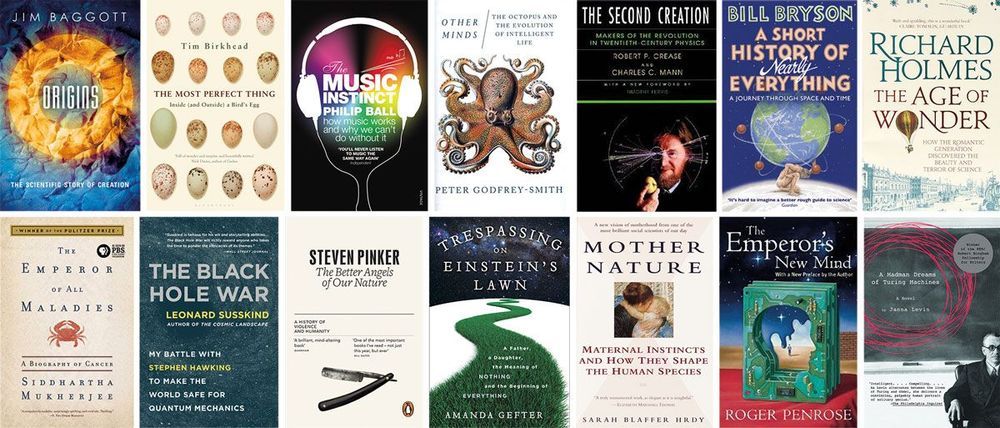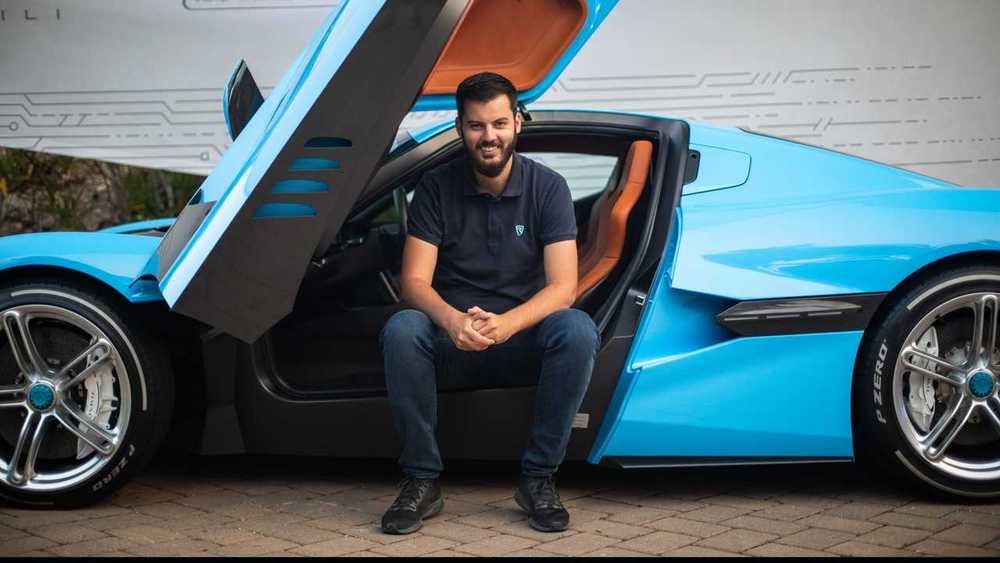Picture sleek rooms, restaurants and bars, and low-gravity trampolining.



To compile the ultimate science reading list, Tushna Commissariat talks to some of today’s top physicists, writers and broadcasters.
“What an astonishing thing a book is. It’s a flat object made from a tree with flexible parts on which are imprinted lots of funny dark squiggles. But one glance at it and you’re inside the mind of another person, maybe somebody dead for thousands of years. Across the millennia, an author is speaking clearly and silently inside your head, directly to you.”
Astronomer, science communicator and author Carl Sagan always had a way with words, and it’s no surprise that he sums up so well the magic of books and writing. From the very first issue of Physics World, this magazine has featured a vibrant reviews section, in which we look at some of the most interesting physics literature being published.


Porsche just released a new car that can not compete with Tesla, so what to do? Invest in someone who can.
Porsche and Rimac Automobili strengthens their partnership related to high-performance EV technology development.
The German manufacturer initially took 10% of Rimac Automobili and 10% of Rimac’s subsidiary Greyp Bikes in June 2018.
We assume that as Rimac has proven high value and quick progress, Porsche was convinced to further increase its stake to 15.5%.

Astrosat-2, 2025 India plans to send a second observatory in space. It will be a followup mission of Astrosat-1 — India’s first dedicated multi-wavelength space telescope — aimed at looking at the origin of the universe and discover new planets. ISRO is finalising a plan for the mission. Origins of the universe.
Artificial muscles can lift 1000 times their own weight.


The recent discovery of a 3.8m-year-old cranium (skull without the lower jaw) is the hottest topic of conversation among palaeoanthropologists right now. But fossils are found all the time, so why is the cranium of this small, old man so important? It turns out the discovery is changing our view of how early hominin species evolved – and how they led to humans. To understand how, let’s start at the beginning.
In 1995, researchers found several partial jaws, isolated teeth and limb bones in Kenya, dated between 4.2m and 3.9m years old, and assigned them to a brand new species: Australopithecus anamensis. All these fossils were found in sediments associated with an ancient lake – “anam”, which means lake in the local language. A number of additional specimens were then found in Ethiopia, thought to belong to the same species.
The primitive features of A. anamensis have led to the widespread view that this species is the ancestor of Australopithecus afarensis, a younger hominin from Tanzania, Ethiopia and perhaps Kenya, dated between 3.8m and 3m years old. The most iconic fossil of A. afarensis is probably the partial skeleton known as Lucy, which was for a long time viewed as the oldest known human ancestor.

Caltech’s Katherine L. (Katie) Bouman has been named a recipient of the 2020 Breakthrough Prize for Fundamental Physics as part of the Event Horizon Telescope (EHT) team that generated the first-ever image of a black hole, while Xie Chen and Xinwen Zhu have each received 2020 New Horizons prizes from the same foundation for their work in physics and mathematics, respectively.
The Breakthrough Prize, now in its eighth year, is considered the world’s most generous science prize. Each Breakthrough Prize is $3 million and the 347 authors of the six EHT papers will divide the award.
“I was stunned and absolutely thrilled to hear the news,” says Bouman, assistant professor of computing and mathematical sciences and Rosenberg Scholar in Caltech’s Division of Engineering and Applied Science. “I’m so lucky to work with an amazingly talented group of individuals that continues to push the boundaries of science every day. It is such a privilege and an honor to share this award with each one of them.”

A Japanese cargo spacecraft loaded with more than four tons of supplies, spare parts and experiment hardware is scheduled to launch from the Tanegashima Space Center in southern Japan to the International Space Station at 5:33 p.m. EDT Tuesday, Sept. 10 (6:33 a.m. Sept. 11 in Japan). Live coverage of the launch and capture will air on NASA Television and the agency’s website.
The Japan Aerospace Exploration Agency (JAXA) unpiloted H-II Transport Vehicle-8 (HTV-8) will launch on a Japanese H-IIB rocket on the tenth anniversary of the first HTV cargo spacecraft launch. Live coverage will begin at 5 p.m.
The spacecraft will arrive at the station Saturday, Sept. 14. Live coverage of the spacecraft rendezvous and capture will begin at 5:30 a.m. Expedition 60 Flight Engineer Christina Koch of NASA, backed up by her NASA crewmate Andrew Morgan, will operate the station’s Canadarm2 robotic arm from the station’s cupola to capture the 12-ton spacecraft as it approaches from below. Robotics flight controllers will then take over the operation of the arm to install HTV-8 to the Earth-facing port of the Harmony module where it will spend a month attached. Flight Engineer Luca Parmitano of ESA (European Space Agency) will monitor HTV-8 systems during its approach to the station.